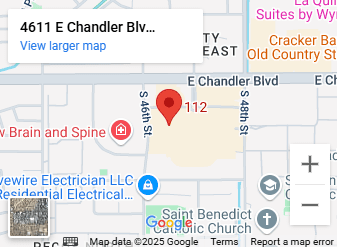
What Are Business Broker Fees and Why Do They Matter?
Business broker fees are charges that intermediaries impose when they help buy or sell a business. These fees compensate brokers for their expertise, market knowledge, negotiation skills, and due diligence. They directly affect the net proceeds for sellers and the total cost for buyers. Clear flat rate structures build trust, align interests, and ensure brokers are motivated to secure the best possible deal.
What Is a Business BrokerFee?
A business brokerfee is usually a percentage of the sale price paid for the broker’s assistance in facilitating a business sale or acquisition. Alternative fee structures may also exist to cover services such as market research, valuation support, and negotiations.
What Types of Business Broker Fees Exist?
Fees commonly fall into three categories: – Commission Fees: A percentage of the final sale price. – Retainer Fees: Up-front charges to secure the broker’s services. – Success Fees: Contingent payments made only upon completion of the transaction.
Brokers may combine these fee types to align compensation with the transaction’s success.
Who Typically Pays Business Broker Fees?
Traditionally, fees are paid by the seller as part of the cost associated with marketing and transferring the business. Sometimes, fees may be split between buyer and seller or assigned to the buyer depending on the brokerage agreement and market practices.
Why Are Business Broker Fees Necessary in Business Sales?
These fees ensure that experienced professionals are compensated for their comprehensive support—from gathering confidential information to targeting potential buyers. This support helps mitigate risks, streamlines the sale process, and drives brokers to achieve higher sale prices, ultimately benefiting both parties and business owners.
How Are Business Broker Fees Calculated?
While largely based on the business’s sale price, fee calculations can vary due to deal complexity, duration, and other factors. Understanding these methods is crucial for proper budgeting and fair negotiations.
What Is the Average Business BrokerCommission Rate?
Commission rates typically range from 8% to 10% of the sale price. In competitive or high-value market environments, the rate might be lower due to economies of scale, while more complex transactions may command higher percentages. These percentages serve as a starting point for negotiations.
How Does Business Valuation Affect Broker Fees?
Since fees are usually a percentage of the sale price, a higher business valuation means a greater absolute fee. Complex valuations involving multiple revenue streams or assets may also lead to fee adjustments, sometimes including additional retainer or success fees alongside the base commission.
What Factors Influence the FeePercentage?
Several elements impact fee percentages: – The industry and business size. – Deal complexity and local market competition. – The seller’s financial performance and history. – Seasonal trends and market conditions.
Brokers with specialized knowledge or extensive experience may charge higher fees because of their proven track record.
Are There Fixed Fees or Retainer Charges?
Besides commission-based fees, many brokers use fixed fees or retainer charges to secure their commitment from the start. Retainer fees cover initial expenses like marketing and document preparation, while fixed fees may be agreed upon for specific tasks such as due diligence or legal coordination. These structures help balance risk between the broker and the client, including mergers and acquisitions .
How Can You Negotiate Business Broker Fees Effectively?
Negotiation is key to ensuring fair fees while receiving professional service. Sellers should approach fee discussions early and be prepared with comparisons from multiple brokers.
When Is the Best Time to Negotiate Broker Fees?
The ideal moment is during initial discussions when setting up the brokerage agreement. Early negotiation clarifies expectations and fee structures, potentially avoiding disputes. Sellers might also renegotiate if market conditions change or if the sale process extends longer than expected.
What Are Proven Tips for Negotiating Broker Commissions?
Effective strategies for negotiating fees include: – Comparing fee schedules from several brokers. – Articulating the intrinsic value and realistic sale price of the business. – Emphasizing long-term relationships to encourage flexibility. – Negotiating a tiered commission structure that rewards higher sale prices.
These approaches can create an alignment of interests between the seller and the broker.
What Should You Consider During Fee Negotiations?
Key considerations include: – Clearly defining the fee structure in the sales agreement. – Specifying the commission rate, retainer fee, and conditions that trigger extra charges. – Including performance-based incentives. – Ensuring transparent reporting of all broker-incurred expenses.
This clarity helps prevent surprises later and supports fair cost distribution.
Can You Use Sample Scripts to Negotiate Fees?
Yes, sample scripts can be very helpful. For example, a seller might say, “Given my business’s market valuation and expected services, I propose a commission rate closer to 10% rather than the standard 12%.” Such scripts demonstrate preparation and facilitate clear, professional negotiations.
What Are the Key Terms in Brokerage Agreements Related to Fees?
Understanding key contract terms is essential for avoiding hidden costs and ensuring fair dealings. These terms outline obligations, fee structures, and conditions that govern the entire transaction.
What Is a Listing Agreement and How Does It Affect Fees?
A listing agreement is a formal contract that defines the broker’s marketing scope, fee details, and listing duration. It directly links the broker’s compensation to the success of the sale. Sellers should review these agreements carefully to ensure all fee-related provisions are explicit and contingencies are disclosed.
What Are Exclusive vs. Non-Exclusive Brokerage Agreements?
- Exclusive Agreements: Grant one broker the right to market the business, often with a more favorable fee structure due to dedicated commitment, but with restricted market exposure.
- Non-Exclusive Agreements: Allow multiple brokers to work concurrently, which may lead to higher cumulative fees but offer broader market outreach.
Sellers need to weigh the benefits of dedicated service against the potential cost implications of using multiple brokers.
What Fee-Related Terms Should Sellers Review Carefully?
Sellers should examine: – Commission percentages and retainer amounts. – Performance incentives or penalties. – Clauses related to fee escalation if the transaction takes longer than expected. – Cancellation fees, minimum guarantees, and refund policies.
Careful review of these terms helps prevent unexpected costs and disputes.
How Can You Protect Yourself From Unfair Fee Clauses?
To avoid unfair fee clauses: – Conduct due diligence and compare multiple brokers. – Consult legal experts experienced in business sales. – Request clear, itemized fee breakdowns in the agreement. – Negotiate terms that allow periodic review or termination with minimal penalties.
These steps ensure that fees remain transparent and justifiable.
How Do Business Broker Fees Vary by Industry and Business Type?
Fee structures can differ significantly based on industry, business size, and complexity. Understanding these variations helps sellers tailor negotiations to their specific situation.
Which Industries Typically Have Higher or Lower Broker Fees?
Industries with complex regulatory environments or high competition—such as technology, healthcare, or manufacturing—tend to have higher broker fees due to the extra effort required. In contrast, simpler business models like retail or local services usually incur lower fees. Higher percentages in some industries may be justified by the potential for larger sale prices and associated risks. business broker
How Do Small Business Broker Fees Differ From Larger Businesses?
Small business transactions typically involve lower sale prices, leading to smaller absolute fee amounts even if the percentage remains similar. Brokers may offer structured fees combining a retainer and a reduced commission rate for these deals. Larger business sales, however, often include more complex mergers and acquisitions components to reflect the high stakes involved.
What Factors Cause Industry-Specific Fee Differences?
Several factors influence these differences: – Market liquidity and risk levels. – Complexity of assets and business operations. – Specific regulatory requirements. – Negotiationcomplexity and transaction timelines.
Sellers should consider these factors when evaluating fee proposals and comparing them to industry benchmarks.
What Common Fee Pitfalls Should Sellers Avoid?
Sellers need to be aware of fee pitfalls that can erode the net proceeds of a sale. Common mistakes include misunderstanding fee scopes and overpaying relative to market standards.
What Are the Most Common Mistakes in Paying Broker Fees?
Common errors include: – Accepting fee structures without fully understanding the scope of services. – Failing to compare multiple brokers. – Overlooking the importance of performance-based incentives. – Misunderstanding retainer fees or escalation clauses.
Diligent due diligence can help avoid these cost-increasing mistakes.
How Can You Identify Red Flags in Fee Agreements?
Watch for red flags such as: – Vague descriptions of when fees are triggered. – Hidden or ambiguous charges. – Excessively high retainer fees without performance guarantees. – Clauses that penalize early termination disproportionately.
Identifying these issues early is essential to prevent future disputes.
When Should You Seek Legal or Expert Advice on Fees?
Seek expert advice when: – The fee structure is overly complex or ambiguous. – Past experiences have led to disputes. – You are entering a niche industry with different fee standards.
Legal consultation ensures that fee terms are fair and aligned with industry norms.
Where Can You Find Tools and Resources to Compare Business Broker Fees?
Reliable tools and resources can help sellers benchmark fee structures and negotiate more effectively using verified data.
Are There Business BrokerFee Calculators Available?
Yes, online business brokerfee calculators allow sellers to input key figures like business valuation and transaction size to estimate fee ranges. These tools incorporate factors such as deal complexity and industry benchmarks to provide a useful reference point for negotiations.
How Can Case Studies Help Understand Fee Negotiations?
Case studies offer real-world examples that highlight successful fee negotiations. They outline strategies used, challenges encountered, and tangible outcomes such as fee reductions and improved net sale proceeds. These examples serve as valuable benchmarks and learning tools.
Where to Find Expert Interviews and Industry Reports on Broker Fees?
Experts and industry reports are available through reputable sources like business publications, industry associations (e.g., FINRA, IBBA), and financial advisory firms. These sources provide current insights, trend analyses, and expert opinions to help sellers stay informed and adjust their negotiation strategies accordingly.
Frequently Asked Questions
Q: What is the typical commission rate for business brokers? A: Typically, business broker commission rates range from 8% to 12% of the final sale price, though this may vary based on deal complexity, industry standards, and transaction size.
Q: Can business broker fees be negotiated? A: Yes, fees are negotiable. Sellers should review multiple broker proposals, use sample scripts, and consider performance-based incentives during negotiations.
Q: Who is usually responsible for paying the business broker fees? A: Traditionally, the seller pays; however, fee responsibilities may be shared or assigned to the buyer based on the terms of the brokerage agreement.
Q: What should I look for in a brokerage agreement regarding fees? A: Look for clear definitions of commission percentages, retainer fees, performance incentives, cancellation clauses, and any additional costs. Transparency is key to protecting your interests.
Q: How do industry-specific factors influence broker fee structures? A: Factors include market liquidity, regulatory complexity, and business valuation. More regulated or complex industries may incur higher fees due to greater required effort and expertise, including mergers and acquisitions.
Q: Why might a business broker charge a retainer fee in addition to a commission? A: A retainer fee secures the broker’s services at the start, covering initial marketing and preparation costs, ensuring commitment throughout the mergers and acquisitions process.
Q: What resources are available to help compare business broker fees? A: Sellers can utilize online fee calculators, review industry reports, and study case examples provided by reputable financial publications and broker associations for competitive fee benchmarks.
Final Thoughts
Business broker fees are a critical component of the business sale process, reflecting the expertise and comprehensive support provided by brokers. Sellers must understand fee structures, negotiate effectively, and avoid common pitfalls to ensure a fair and transparent transaction. By comparing market standards, using reliable calculation tools, and seeking expert advice, business owners can protect their financial interests and maximize the overall sale value. Thorough due diligence and proactive negotiations remain essential for success in the complex mergers and acquisitions landscape.




